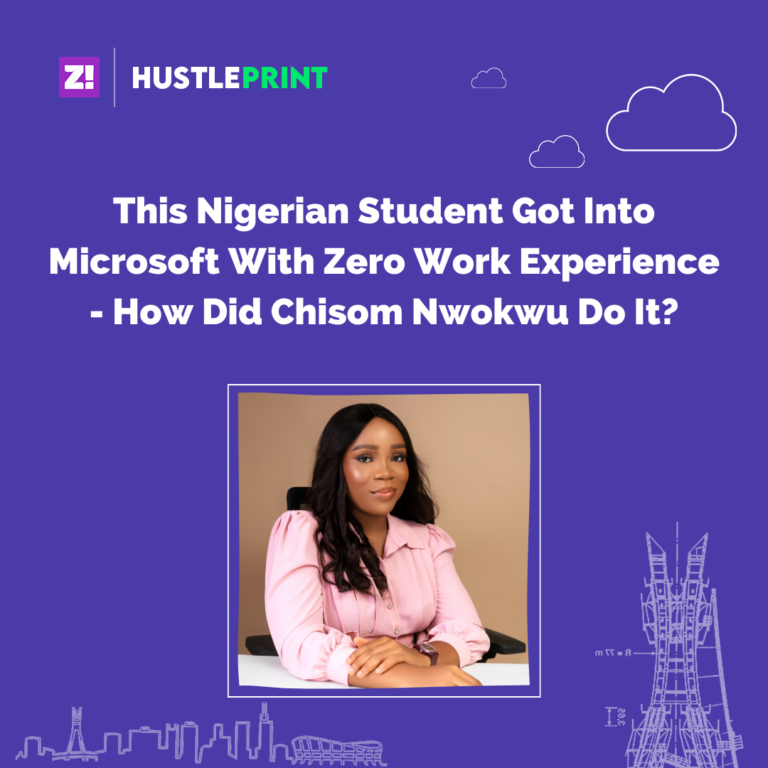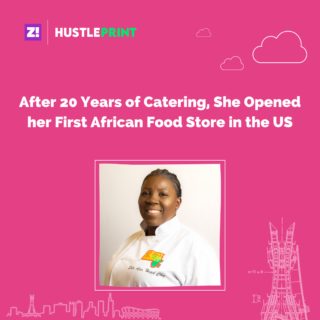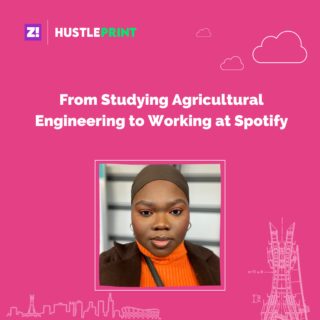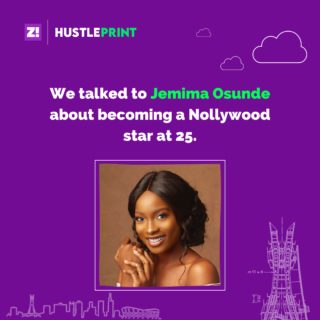Navigating life as a woman in the world today is interesting. From Nigeria to Timbuktu, it’ll amaze you how similar all our experiences are. Every Wednesday, women the world over will share their experiences on everything from sex to politics right here.
Today’s #ZikokoWhatSheSaid subject is Omotoke Fatoki, a 29-year-old Nigerian woman. She talks about how growing up with her grandmum and dad spiked her curiosity for Nigerian cultures, falling in love with the north during her tour across Nigeria, and tips on travelling with a broke girl budget.
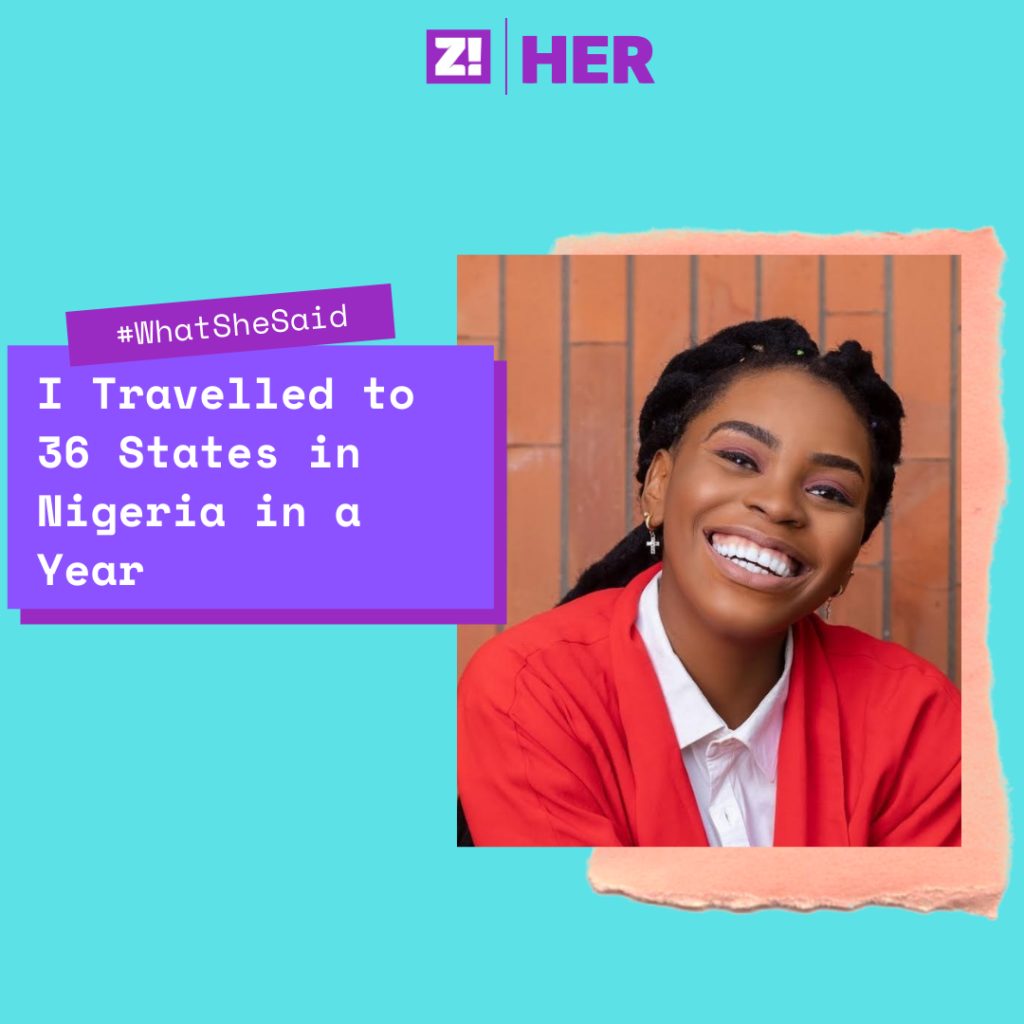
Tell us how you decided to go on a trip across Nigeria.
Culture is important to my family. Most of my childhood was spent with my grandmum and dad. My grandmum was pretty old-school. If we weren’t using firewood and cooking with clay pots in the backyard, she was sewing her aso-oke into new dresses for me. My dad stayed true to his origins in Ogun state. Our surname — Fatoki — was the strongest link to his Yoruba roots. Even while we lived in Lagos, he stayed connected to his family and roots.
Although my grandmother raised me as an Anglican, experiencing their different beliefs made me open-minded and curious. I wanted to explore how people lived. But that couldn’t happen until I figured life out.
What did you do?
By 2016, two things had happened: I was done with uni and the 9-5 life wasn’t for me. I started a music career and eventually moved on from it because it wasn’t working out. On the side, I did other things to get by. I worked as a brand manager for artisans, a personal shopper for families during the weekends and managed a few social media accounts. Lagos was stressful, but in between all the hustle, I tried to explore its different parts.
I visited a few restaurants, but I was more interested in museums and art galleries. Nike Art Gallery was one of my favourite places because the artwork showcased Nigerian culture. Beyond that, Lagos didn’t have a lot of places that captured my interests. Eventually, I got bored. I was tired of living in a bubble.
There had to be more, but when Nigerians talked about travelling anywhere else, it was always Canada. I mean,I couldn’t blame them. A part of me also thought I’d end up getting married and moving to Canada.
But you didn’t…
Yeah. Spending all those years with a father that talked about origin and roots made me appreciate home. I definitely wanted to see outside of Nigeria, but first, I wanted to explore my immediate environment. So in July 2018, I decided to take a road trip. Osogbo was the cheapest place I could swing.
Sweet. What was it like being outside your bubble for the first time?
Revealing. Unlike Lagos, Osogbo had hills. The waterfalls were my favourite part to see. I didn’t plan it, but I also got to experience the Osun-Osogbo festival. It reminded me of my father’s practice with Ifa, but this procession was for the Osun goddess. After that, I had questions: What did other Nigerians believe? How was religion shaping lives? I wish we were taught this in school.
I decided to take a trip around Nigeria and that’s how I mapped the next year out on the road. I made a plan to document my trip and called it “Toke on the move #36of36.” As I hopped on buses, trucks and bikes between states, I captured everything online — food, festivals, people. 2019 was quite an adventurous year.
Tell me about the adventure.
From Lagos, I travelled to Ibadan, Ogun and went through the southwest. Beyond the waterfalls in Osogbo and Kwara, the culture in the west is similar across the states. I could sense some of the fast-pacedness of Lagos and religion was also diverse. There were Christians, Muslims, traditionalists and, this one surprised me, people who worshipped trees.
As I moved out of the west, the people became slower, chilled. The south-eastern states didn’t have many waterfalls or hills, but the culture was rich. The market squares always had a celebration. Walking down a street, I could find myself in the middle of a festival with masquerades running around. It was odd but fascinating.
If you had to pick a favourite place from the south, what would it be?
Akwa-Ibom. It felt like everything Nigeria should be — a place with clean roads, nature, access to clean water and constant electricity.
I’m curious, how were you able to fund this baby girl lifestyle?
Hm. I was making ₦25k–₦30k from managing social media accounts, which covered very little of my expenses. I had to pay for transport, accommodation, feeding and a bit of sightseeing. A girl was broke. I had to learn a few tricks. The first was staying with the locals rather than hotels. There were always families kind enough to let me stay for a few days, and I never had a bad experience.
As my waka waka continued and I documented it online, I slowly became a brand. My audience began to call me “Alárìnká”, someone with no direction.
Why does this sound like a curse?
LOL. I rebranded it to fit my identity. Alárìnká became “the ones who love to see the beauty of the world”. As I shared my journey, the community grew. I got donations to explore more places. Who am I to say no to money? When that didn’t come in and I was low on cash, I took money from loan apps to fund my travels.
Loans?
I wasn’t worried. There were brand partnerships on the table. Africans in the diaspora were already booking me as a tour guide in Nigeria. Things were looking good.
By 2020, I was in what became my favourite region — the north. It was the last leg of my journey and I was running on money I made from selling out Alàrìnká t-shirts.
So the north. What was that like?
Huge! In Taraba alone, it took six to seven hours to get to another locality. There was so much to see. I called it a magical land.
When I decided to go, I wasn’t sure what to expect. People said so many things. “The north is unsafe,” “It’s under duress.” “How can you travel alone as a woman?” Honestly, I didn’t care. One morning, I set out for Kano. Like Lagos, it was a huge commercial town. I visited the city without a hijab and walked around freely — no harassment, nothing. Just like other states, I stayed with the people, and they were kind. Then the street food? Masa was amazing — efo riro made it even better.
The north seemed like a beautiful ruin.
Why?
There’s a lot of suffering Nigerians don’t see.
For instance, Ikyogen in Benue State was an attraction I wanted to hike and explore. When I arrived, the reality was different. Right beside Ikyogen, there’s a refugee resettlement camp. People fleeing from Cameroon or Boko Haram attacks ended up there. It was sad to see.
In Taraba, I met kids paddling people across the Taraba river to make money. Some were selling rice to tourists, but how many people travel to Taraba?
That’s sad.
Yes. The north is very isolated from development.
Besides interesting food combinations, what’s the craziest thing that happened on a trip?
In Bayelsa, I was almost abducted. I was going around taking pictures and didn’t know it wasn’t allowed in certain communities. Next thing a group of people rushed up to me and tried to take away the camera. I explained I was just a traveller. For some reason, they suspected I was a spy. After a few hours, they sha let me go.
And that didn’t stop your journey?
They let me go, didn’t they? Call it coconut head, but you only live once.
I hear you. So how was the rest of the trip?
Amazing. I made so many friends along the way. Bike men were my OGs because they always knew the affordable spots to see and it was the cheapest way to move — there’s still one from Taraba that calls me all the time. I ate good food and explored more cities. I lived life on the edge and loved it. The last state I visited was Kebbi. The best part was finishing the trip on International Women’s Day in 2020
When my trip ended, I had big plans for Alàrìnká. Sadly, the pandemic shut things down.
Aunty Rona did us dirty. What happened?
Omo. First, I lost the files on my camera. Everything went to shit from there. As countries shut down, brand deals went off the table. Eventually, I had to sell my phone to get some money. I still got by on managing social media accounts, and then in 2021, I started learning web development.
A travel and tech babe
LOL. Travel can’t fund itself.
So financially, are you in a better place?
Yeah. Things got better in 2021. I’ve hacked the travel life on a budget, so I got into travel consultation for NGOs.
Now, I’m focused on travelling for impact. I want to connect more communities like what I found in Benue and Taraba to NGOs with the resources to help. I’m really passionate about educating more Nigerians. There’s a lot more we can do for each other.
Any plans on travelling outside Nigeria?
Yes! I’ve ticked Ghana and Cote’d’Ivoire off the list. In 2019, I was sponsored as a tour guide to Benin Republic. I don’t know where’s next. Everything outside Nigeria is expensive.
Any interesting food?
I tried rice and okra in Cote’d’Ivoire, but the Yoruba girl in me was screaming.
LOL. Never again.
In 29 years, you’ve experienced so much. What’s next?
Honestly, I’m still figuring it out. There has been some clarity since 2018, but there’s still so much to do. For now, I’d call this chapter Alàrìnká: A woman living on the edge.

